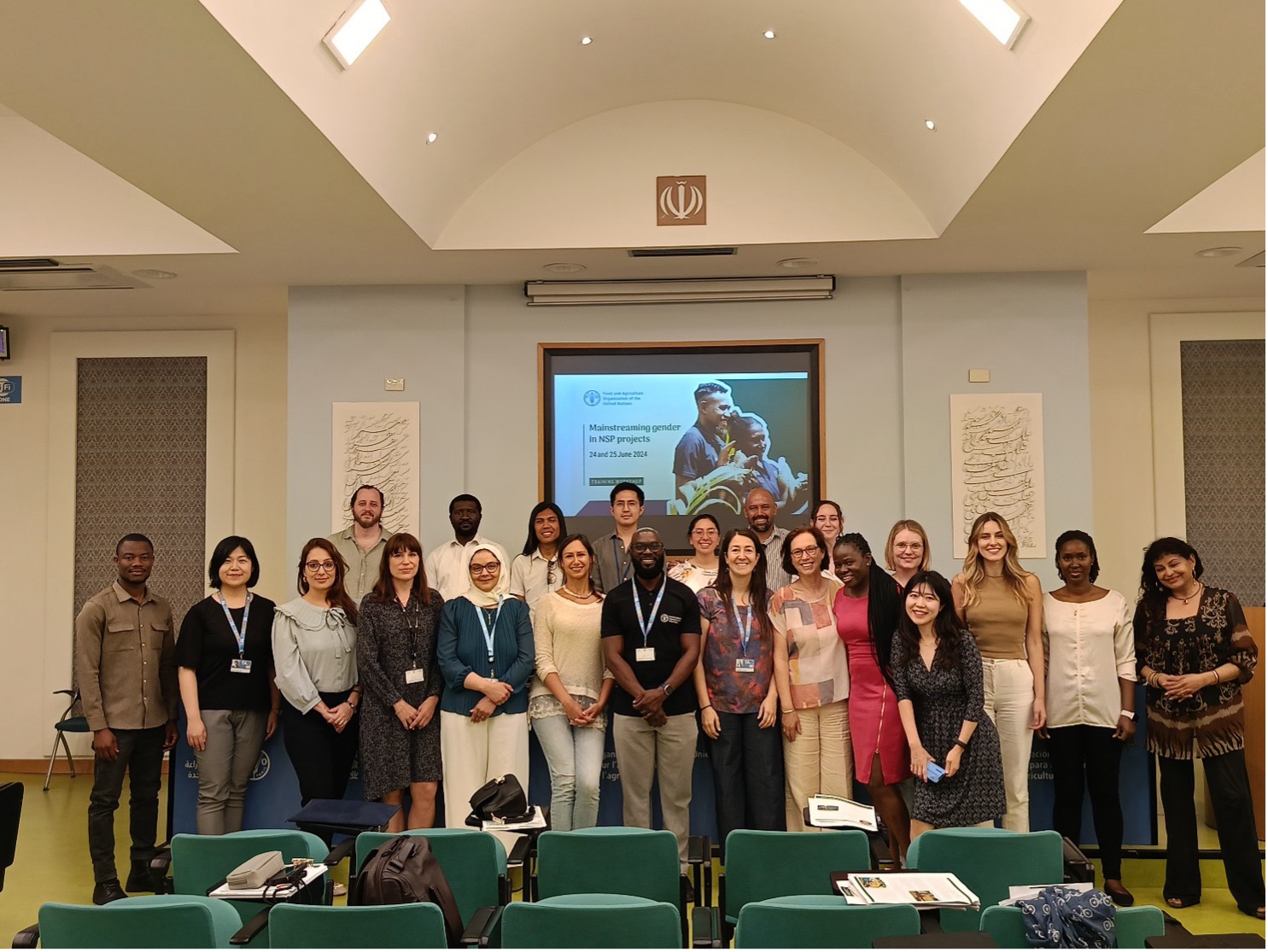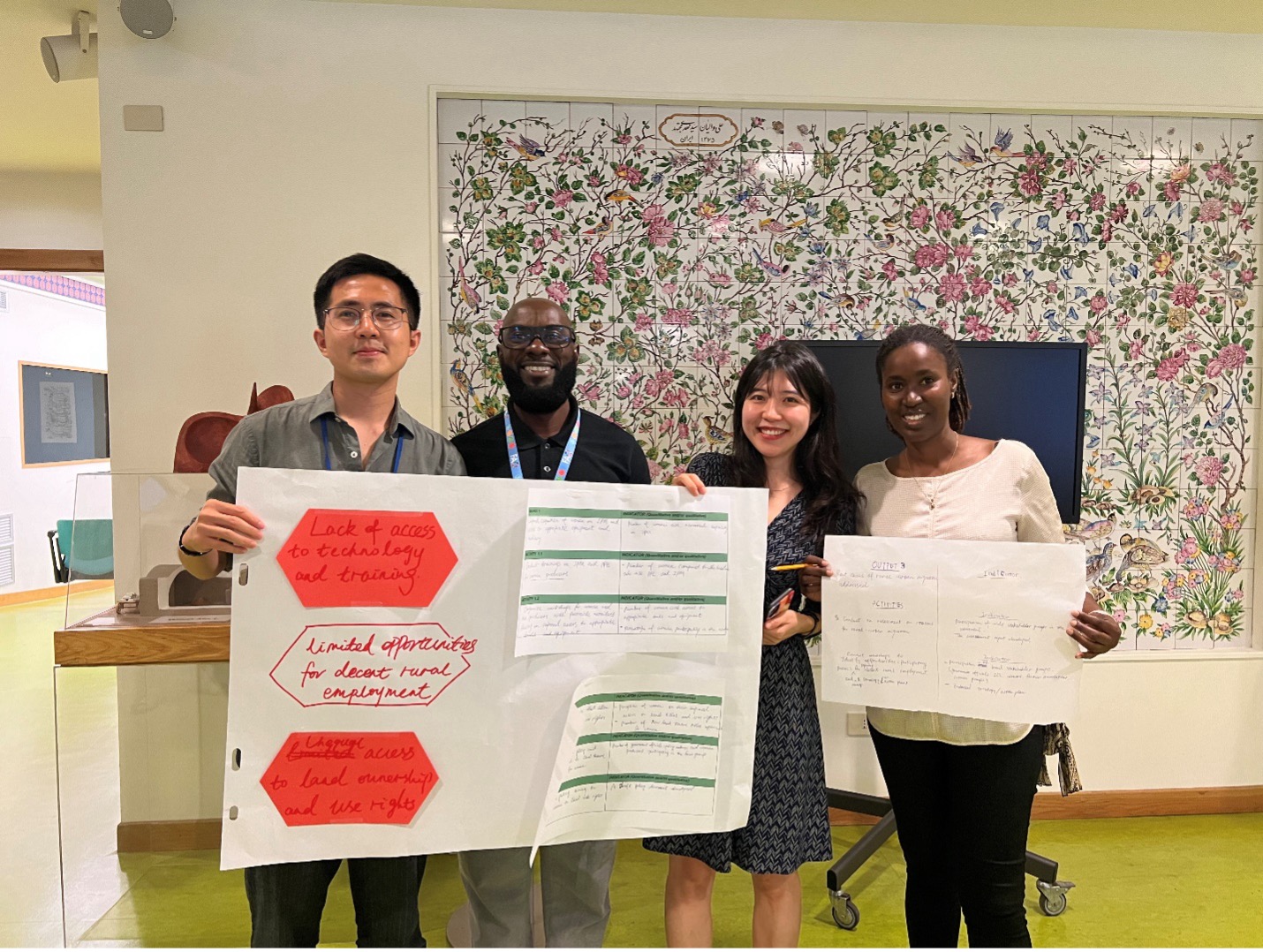Enhancing FAO projects through gender perspectives
Insights from FAO’s training on integrating gender approaches in Plant Production and Protection projects

FAO is committed to addressing gender equality and women’s economic empowerment to achieve food security and nutrition, as promoted by its Policy on Gender Equality 2020-2030. In project management, mainstreaming gender is crucial to ensure that the needs and perspectives of all are considered, leading to more equitable and successful outcomes. Gender-focused trainings are essential to keep employees informed, aware, and capable of implementing projects with a gender perspective. This not only enhances project effectiveness but also strengthens the organization’s commitment to inclusivity and diversity.
Recognizing the importance of staff learning, the FAO Plant Production and Protection division and the Rural Transformation and Gender Equality Division jointly organized a training on “Mainstreaming Gender in Plant Production and Protection Projects”. 23 among FAO staff and consultants attended the two-days training, focusing on two main objectives: refreshing knowledge on essential gender-related concepts and approaches, and equipping participants with the knowledge to integrate gender considerations effectively across the project cycle, from inception to implementation.
The discussion centered around fundamental gender concepts and their applications within FAO’s work on plant production and protection. A notable outcome of the discussions was the deepening of the Gender Transformative Approach, which moves beyond mere recognition of gender disparities to actively challenging and addressing them in practical scenarios. Participants also explored the spectrum of gender-related project classifications Gender Markers: GM0, GM1 and GM21. At FAO, gender markers are assigned to define the extent to which gender is planned in the project.
By engaging in hands-on exercises to apply gender perspectives to projects, participants fostered a practical and theoretical understanding of gender integration in the project cycle. The practical activities were very well received by the attendees, these involved interactive tests, questions for discussion, and activities in small working groups, ensuring a good balance between the different teams and expertise, to encourage exchanges of different viewpoints and experiences. At the end of the training, participants were able to present their analysis of a case study, formulate gender-transformative outputs and indicators in the project development, identify gender constraints and address potential issues using gender sensitive outputs e indicators.
The workshop underscored that using a gender lens doesn't necessarily mean focusing solely on women's empowerment, but also analyzing who is at a disadvantage based on their gender and how projects can address these disparities.
A participant noted, "To achieve gender equality, we sometimes need to think out of the box, and see beyond what is in front of us. Field investigation is essential to understand the reality of the communities that we are willing to work with.”
Mr Ronnie Brathwaite, NSP Gender Focal Point and Chair of the NSP Gender Group, remarked, “Integrating gender perspectives into our projects is not just about ticking boxes. It’s about ensuring that our initiatives are inclusive, equitable, and impactful. Hopefully, we will have an opportunity to train another group of NSP colleagues in the future.”
The NSP Gender Action Plan, spanning 2023 to 2027, is designed to embed gender mainstreaming into FAO’s projects and fortify the capacity to integrate gender effectively. As these efforts continue, it is crucial for all team members, regardless of their role, to be actively involved in promoting gender equality and understanding the transformative power of integrating gender perspectives into their work.
 |  |
[1] GM0 - Not expected to contribute to gender equality. GM1 - Contributes to gender equality in a limited way. GM2 Gender equality as significant objective.


